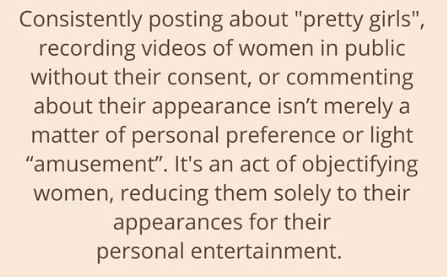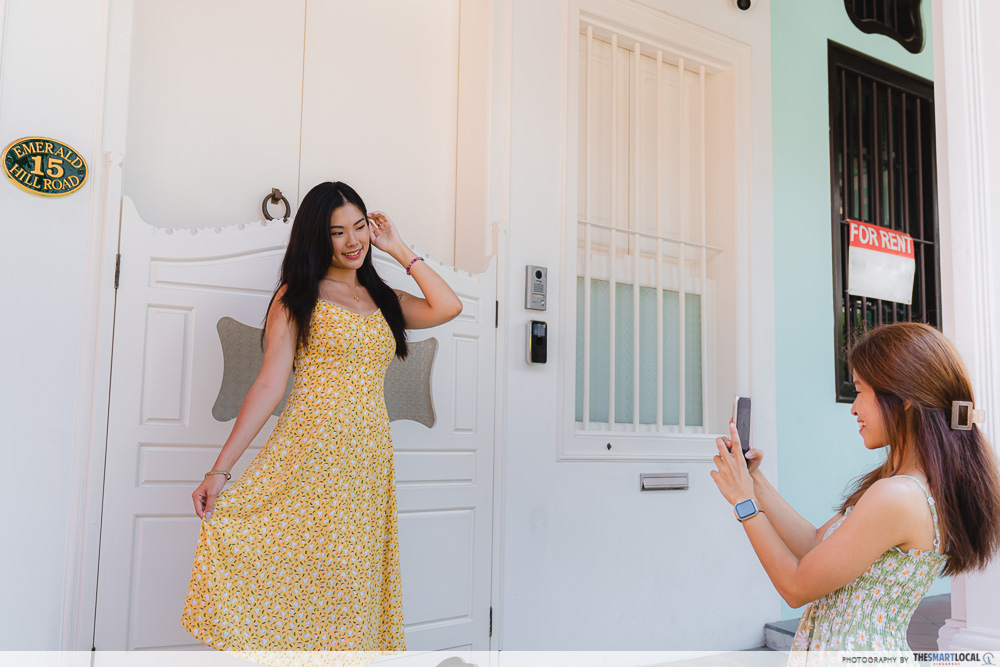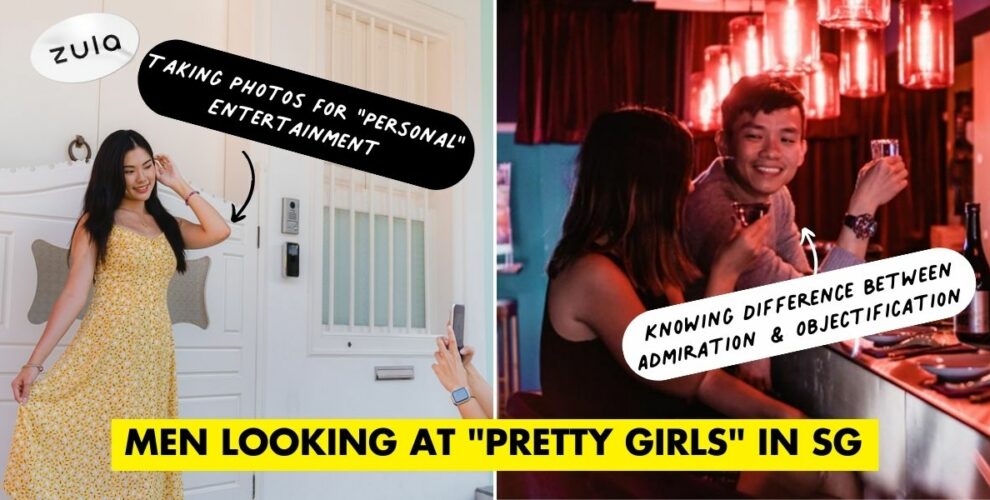Men Talking About & Looking At “Pretty Girls”
Don’t get me wrong, I love being a woman. But there are days when I’m just sick and tired of having to tell men to stop objectifying females, and that it is not okay to take photos for their “personal” entertainment. As a matter of fact, you might be surprised to know many of them actually think that there is nothing wrong with the aforementioned actions.
If you recall recently, presidential candidate Tan Kin Lian made headlines for his past social media posts, in which he made several comments about “pretty girls”. What concerns me the most is that despite apologising, he asked AWARE Singapore to explain what was offensive, suggesting that he still didn’t understand what was wrong or what he was even apologising for.
Understanding what the male gaze means
 For illustrative purposes only
For illustrative purposes only
As a Media and Communications major graduate, I attended many classes on media portrayal, and one that struck me the most was a lecture on the “male gaze”. For the unacquainted, the male gaze refers to a way of looking at women by sexualising them from a masculine, heterosexual perspective.
In order words, it refers to a person who is being perceived as an object, and not as a human being.
Ever since I attended that class, my perspective on the way men view women changed drastically. I realised women have always been sexualised and objectified since the history of time, especially through media. Although society is changing for the better with movies that empower women like Barbie, there’s no denying that many men still view women as a piece of meat.
A firsthand experience was how when I was still a student in Korea, my university dance team was invited to perform at a military base. Considering that we only had to perform female K-pop idol dances, my friends and I didn’t think much of it because we were university students wanting to earn extra cash.
As it turned out, I only later realised how messed up the entire arrangement was.
We performed in front of the entire military base, and during the performance, I began to feel uncomfortable with the way the audience was cheering. It didn’t feel as if they were clapping for our dance, but rather, they were entertained by the mere fact that we were girls dancing in a male-dominated space.
Interestingly, I was the only one among my friends who found it awkward. My Korean friends later explained to me that such gigs are normal, and military bases with more funds get to invite actual K-pop girl groups to perform for them.
I was pretty sure my brain was trying really hard to process what I’d just heard at that moment, but it sounded as if my friends were used to such occurrences. That was when I realised it hadn’t occurred to my friends that they were being objectified by men. Yikes.
How talking about and looking at “pretty girls” is not okay
 A statement from AWARE Singapore
A statement from AWARE Singapore
Source
Such a lack of awareness in society made me understand why many men, and even some women, feel that talking about and looking at “pretty girls” is okay. The answer is pretty simple ‒ objectifying women has been deeply embedded in our culture, and there aren’t enough conversations about the topic.
Chances are, these people have never been through such experiences on the receiving end, and they may not understand what it is like to be objectified, sexualised, and filmed without permission. And the worst part? They are ignorant about how these “harmless” banters actually translate to the objectification of women.
Instead, they see such behaviours as “lighthearted” and “fun” just because it brings out an honest side of them. While yes, honesty is highly valued in today’s society, objectifying women isn’t because it demeans and reduces women solely to their appearances.
 For illustrative purposes only
For illustrative purposes only
According to the results of a survey conducted on ZULA’s Telegram channel, it was revealed that 31% of 729 respondents found men talking about and looking at “pretty girls” uncomfortable because such actions objectify women. Yet, 51% felt that they were okay as long as it was respectful and consensual ‒ but let’s face it, what are the odds of it being that way?
On the other hand, there are people who believe that talking about and looking at “pretty girls” isn’t a big deal because they are just being open about their opinions ‒ 11% of the respondents fall into such a category.
Once again, some might believe that 11% isn’t a significant figure. But get this ‒ for an influential figure to consider talking about and looking at “pretty girls” as a jovial matter, it encourages and gives the green light for others to follow suit. And that is no laughing matter, especially in the long run.
Also read:
10 Life Lessons From The Barbie Movie That Remind Us Although Life Isn’t Perfect, We Are “Kenough”
Admiration vs objectification
 For illustrative purposes only
For illustrative purposes only
With that being said, I don’t mean men must avoid complimenting women and shy away when women walk past them. There are many other ways to do so without causing women to feel uncomfortable or invading their personal space. For starters, catcalling should just be banned.
There is a need to know how to draw a distinction between admiration and objectification.
For instance, admiration for a woman includes appreciating not only her physical appearance, but also other aspects such as her character, qualities, and skills. It means you genuinely value her as a person rather than focusing on a specific body part.
 For illustrative purposes only
For illustrative purposes only
I’m pretty sure women would prefer receiving compliments like “You were really confident in that presentation, respect!” or “I was impressed by how you resolved the conflict without losing your cool”. Basically, things that aren’t always about their appearance.
However, if you really feel like complimenting someone’s appearance, here are some examples to consider. Go with openers like, “This new dress really suits your hair colour” or “Did you try a new makeup style? Your eyes look really gorgeous.”
But, once you see a woman as nothing more than a sexual object, that is when the admiration ends and objectification begins.
Ways for society to improve
 For illustrative purposes only
For illustrative purposes only
Like Helen Keller once said, “Alone we can do so little; together we can do so much.” I believe that changes start with us, and we can begin by talking about such topics with our family members and friends.
A colleague of mine also shared that people who still don’t understand why talking about and looking at “pretty girls” are not okay “should really consider talking to their female friends about such occurrences to understand their point of view better.”
I can’t help but agree because doing so helps to raise awareness on such topics, and further promotes respectful behaviour among every individual. After all, we shouldn’t hold back and wait for a huge hoo-ha to take place in Singapore before we condemn such behaviours.
There Are Many Ways To Respectfully Appreciate & Admire Women
At the end of the day, there is no denying that Singapore can still do better when it comes to treating women with respect. Men need to put themselves in the shoes of women and think about why we aren’t taking this matter lightly.
Hopefully, we will see improvements in the near future, and normalise more conversations on these topics with the younger generations in Singapore.
Cover: TheSmartLocal
Also read:
Why Females Involved With Media Scandals In Singapore Get The Short End Of The Stick











